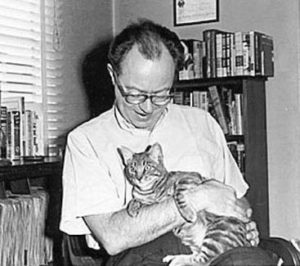
Years ago I discovered on Forest Books‘ sidewalk cart an unassuming hardback with an unassuming title, Great American Detective Stories, edited by legendary Bay Area writer Anthony Boucher and published in June 1945.
Curious what stories made the cut, I expected the usual names and the usual reprinted titles. I did see the usual names—Raymond Chandler, Dashiell Hammett, and Cornell Woolrich being of the most interest to me—but was surprised by Boucher’s story selections. He included one of the three Sam Spade short stories Hammett wrote for easy money (which were not widely reprinted until recently). The Chandler selection was a novella I’d never heard of before, “No Crime in the Mountains”, which appears to have been the nucleus (Chandler would say “cannibalized”) for The Lady in the Lake.
Over the years I’ve dipped into this collection on occasion, and discovered it to be a fine snapshot of late-World War II popular American writing.
But it was the book’s front matter that gives me pause, specifically the publisher’s note:
This book is manufactured in compliance with the War Production Board’s ruling for conserving paper. … Thinner and smaller books will not only save paper, plate metal and man power, but will make more books available to the reading public.
The reader’s understanding of this wartime problem will enable the publisher to cooperate more fully with our Government.
It’s a fine-print reminder of how the cost of war used to burden everyone’s daily life, and therefore was a constant reminder of war’s price, both in human cost and economic.
Printed above the note:
“Books are weapons in the war of ideas.”
– President Roosevelt
They still are, but we’ve allowed our attention to wander, and it’s to our detriment.